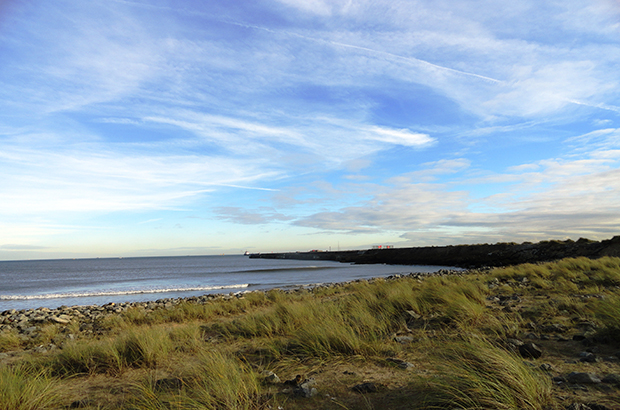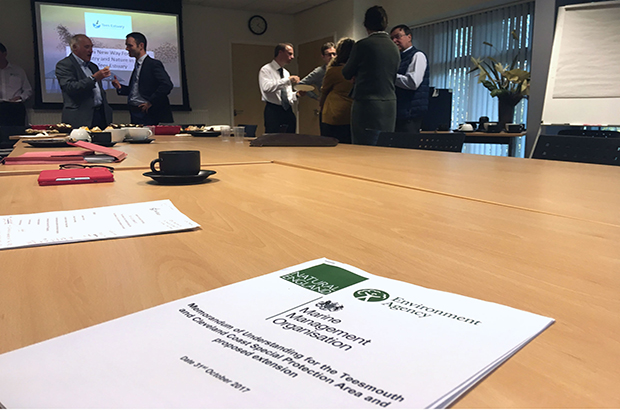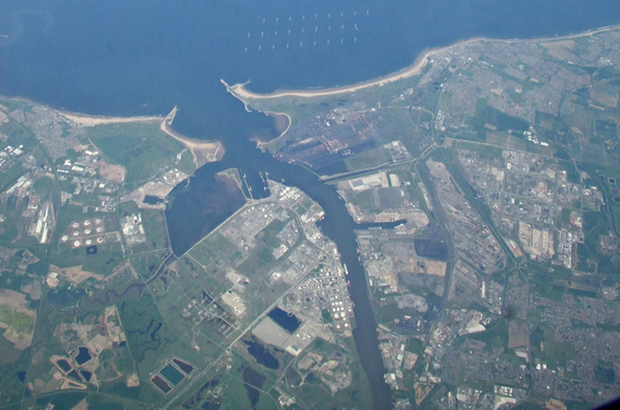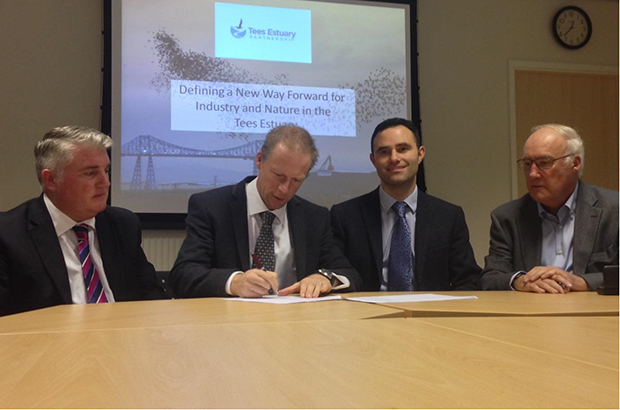The way that regulators work with businesses operating in the Tees Estuary is changing thanks to a new agreement.
The Marine Management Organisation has signed up to a memorandum of understanding (MoU) which sets out new ways we will work with the Environment Agency and Natural England to provide an efficient, consistent service that supports sustainable growth.
The agreement will make it easier for developers and businesses to navigate the regulatory framework in a number of ways:
- Providing a single point of entry – pointing applicants to other bodies as relevant and in some cases proactively informing other MoU signatories or consenting bodies that an application or an advice request has been received.
- One lead authority – aiming to reduce the duplication of evidence requirements and to streamline regulatory processes around Environmental Impact Assessments and Habitats Regulations Assessments.
- Dispensing with, or deferring regulatory responsibilities – exploring the legal options available for streamlining within the regulatory process.
- Certainty on evidence requirements – identifying common evidence needs, enabling parallel tracking of work to satisfy evidence requirements, and assessing the level of support that could be provided to proactively fill strategic gaps in evidence.
- Co-ordination of advice – providing coordinated advice between organisations within agreed timescales.
The MoU will also help to protect and enhance the Teesmouth and Cleveland Coast nature conservation sites.
Improving the Tees Estuary
The Teesmouth and Cleveland Coast area is home to important nature conservation sites, with a range of rare habitats that support priority species next to petro-chemical complexes and power stations within a busy port. Some sites are of such high importance for nature conservation that they are designated as Sites of Special Scientific Interest (SSSI), Special Protection Areas (SPA), or Ramsar sites.
It is estimated that just 10% of the Tees Estuary’s natural habitat remains, challenging regulators to work together with operators and developers to find a balance between protecting the environment and supporting sustainable growth.
Natural England has proposed to extend the Teesmouth and Cleveland Coast SPA to include the entire Tees Estuary. This proposal led to the creation of the Tees Estuary Partnership (TEP) in 2016 which includes representatives from many of the large industrial organisations in the estuary, the Marine Management Organisation, Natural England, the Environment Agency, Tees Valley Combined Authority, four local authorities and several conservation NGOs.
The TEP aims to:
- Ensure that evidence supported any extension of the SPA
- Achieve an understanding of how regulators would work together to drive sustainable growth
- Identify a habitat framework of enhancement opportunities and innovative mechanism to deliver these
Shaun Nicholson, Head of Strategic Licensing for the Marine Management Organisation, said:
This agreement is further testament of the MMO’s commitment to improving co-ordination of the consenting process for coastal development in England. We hope it will result in an improved experience for applicants whilst continuing to manage risks to the environment in a proportionate way.
Oliver Harmar, the Environment Agency’s North East Area Director, said:
The Tees Estuary, which is a mix of heavy industry and high quality nature sites, needs a unique approach if we’re to make significant environmental improvements and support sustainable business growth. This MoU is another step towards achieving that and presents an exciting opportunity for regulators, the Tees Estuary Partnership and the Tees Estuary.
Bradley Tooze, Northumbria Area Manager for Natural England, said:
We have a long history of working in close partnership with Teesside industry to bring benefits both for the environment and the local economy. This agreement between the regulators will make the process smoother and promote sustainable growth while enhancing and protecting the natural heritage of the Tees.
Don't forget to follow us on Twitter and LinkedIn for more updates on our work.
Photo 1: © Robert Graham (cc-by-sa/2.0)
Photo 2: © Thomas Nugent (cc-by-sa/2.0)



